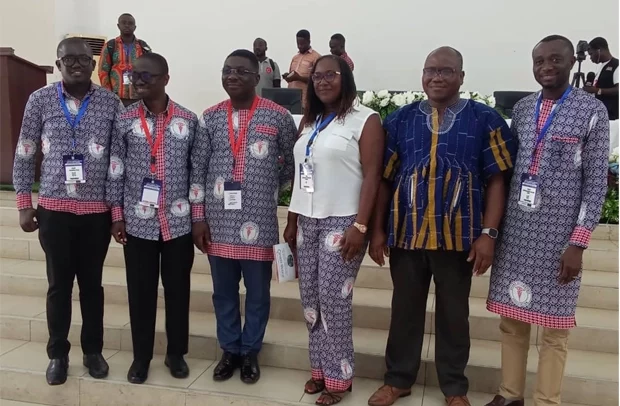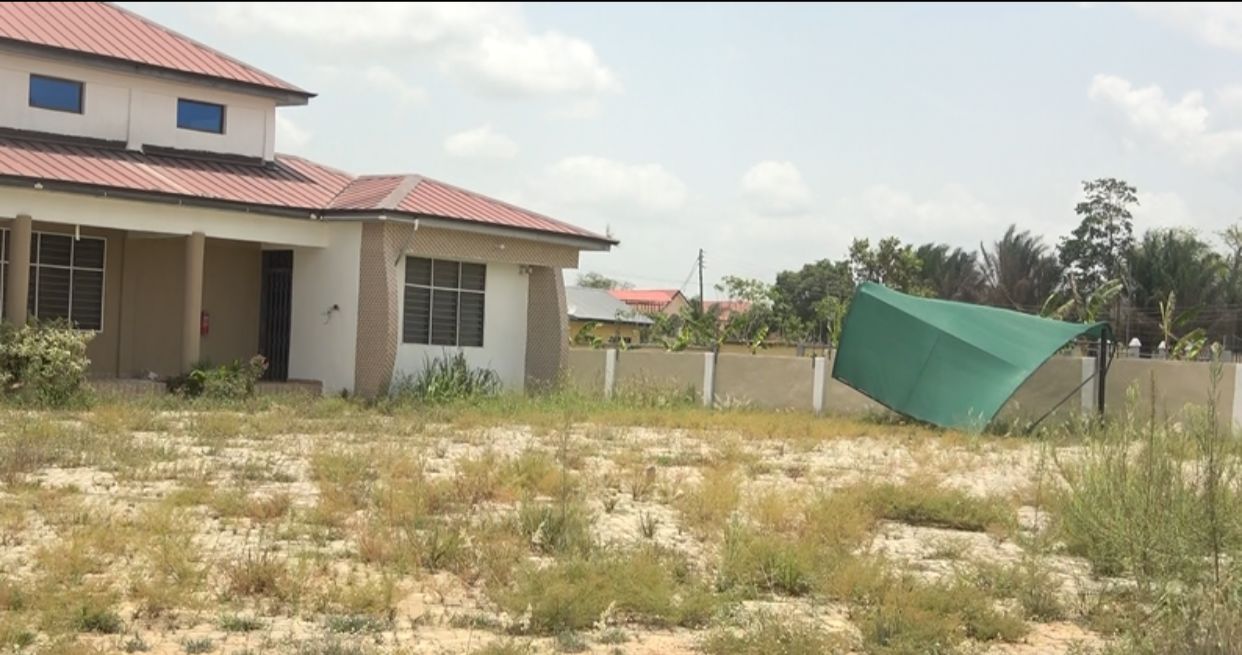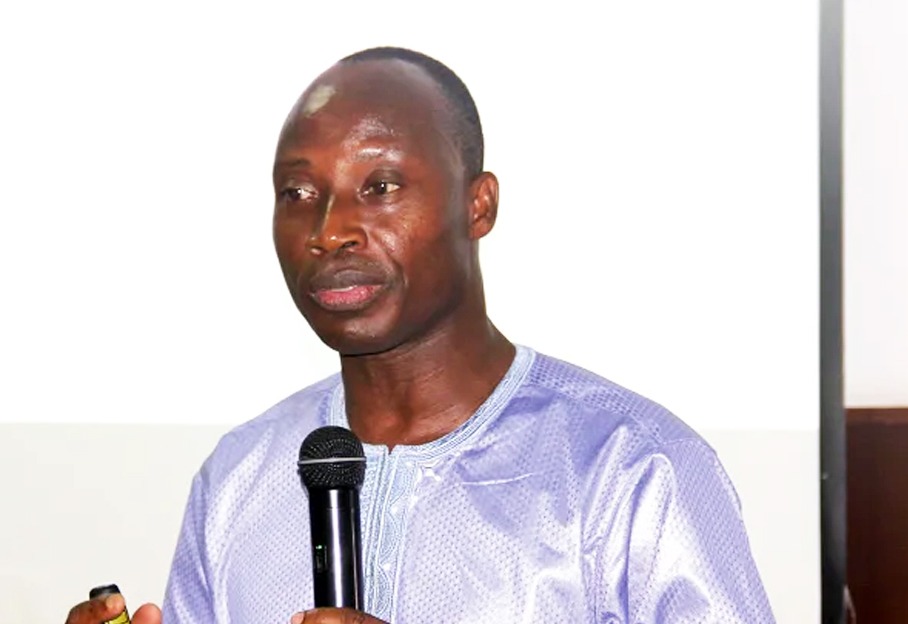
A group photograph of the speakers
Ghana’s eye care professionals have renewed calls for urgent reforms, stronger policy action, and improved funding to strengthen low vision rehabilitation and expand access to quality eye health services across the country.
Speaking at the 13th Annual General Meeting and Scientific Session of the Ghana Optometric Association (GOA), held at the Kwame Nkrumah University of Science and Technology (KNUST), the key speakers — Dr. Carl Halladay Abraham, Dr. Shirazu Issahaku, and Prof. Samuel Bert Boadi-Kusi — underscored the need for coordinated national efforts to address the growing burden of visual impairment and strengthen regulation, professional welfare, and innovation in the sector.
The event, themed “Low Vision Rehabilitation: Breaking Barriers and Building Bridges,” brought together hundreds of optometrists, policymakers, regulators, academics, and health stakeholders from across the country and beyond. Ninety-four new members were also inducted into the Association.
Delivering the keynote address, Dr. Carl Halladay Abraham, a lecturer at the Department of Ophthalmic Science at the University of Cape Coast, called for stronger policy action, improved funding, and greater recognition for low vision care, describing it as “an act of justice, not charity.”
He noted that low vision rehabilitation — which enables people with partial sight to live independently — remains one of the most neglected areas of eye health despite its social and economic importance.
Dr. Abraham, who is also a low vision care and rehabilitation practitioner, warned that the cost of vision impairment extends beyond personal hardship to significant national economic losses. “When people lose their vision, we as a country lose money. Ghana loses about 350 million dollars annually due to loss in productivity and wages,” he said.
He identified poor governance, inadequate data, lack of a national policy, and weak funding as major obstacles to effective low vision care.
Dr. Abraham called for statutory and sustainable funding for the Ghana Eye Care Secretariat, a national policy on low vision rehabilitation, and better recognition for practitioners. He also emphasised the need for disability-friendly infrastructure, urging, “There shouldn’t be a single infrastructure in this country built without considering persons with disabilities — not one.”
Sharing stories of patients whose lives were transformed through low vision aids, he said, “When we empower someone to read again, to navigate their community, or to return to work, we restore not only sight but personhood.”
AHPC Reaffirms Commitment to Optometric Development
In a fraternal message, the Registrar of the Allied Health Professions Council (AHPC), Dr. Shirazu Issahaku, reaffirmed the Council’s strong partnership with the Ghana Optometric Association and announced several major reforms aimed at strengthening regulation, professional development, and digital transformation across the allied health sector.
He commended optometrists for their pivotal role in shaping the Council since its inception, describing the profession as a “critical pillar” of Ghana’s healthcare system.
He disclosed that the Council had introduced computer-based licensure examinations, harmonised curricula across allied health training institutions, and established a Professional Standing Committee to strengthen regulation. He added that the budget for the Ghana College of Allied Health Professions had been incorporated into the Council’s 2026 budget to pave the way for its establishment.
According to him, the professional register and allied health training institutions are being audited to enhance credibility, while accreditation processes are under review. The Council has also introduced four compulsory Continuing Professional Development (CPD) modules, fully digitised its logbook and indexing systems, and restructured its operations to include three new technical directorates — Education and Examination; Regulation and Compliance; and Policy, Planning, Research, Monitoring and Evaluation — to enhance efficiency and service delivery.
Dr. Issahaku further revealed that efforts were underway to complete the Legislative Instrument (LI) to operationalise Part I of Act 857 (2013) and to secure a permanent office complex for the Council.
Policy Reforms and Recruitment Drive
Outgoing GOA President, Prof. Samuel Bert Boadi-Kusi, also urged urgent reforms in Ghana’s eye care sector to strengthen professional standards, enhance recruitment, and improve access to quality vision services nationwide.
Speaking at the same event, he appealed to the Allied Health Professions Council and the Ghana Health Service to step up recruitment of optometrists into the public health system and introduce incentive schemes to attract professionals to under-served areas.
“Eye care is not just a profession; it is a calling, a responsibility, and a service to God and humanity,” he declared.
Prof. Boadi-Kusi highlighted several achievements under his tenure since 2022, including the introduction of practical CPD programmes, the launch of the GOA Scientific Journal, groundwork for a College of Optometry, and the creation of the Refractive Error Awareness Week — described as a global first.
On member welfare, he said the Association had provided support in disciplinary and health matters, explored group insurance options, and assisted bereaved families. However, he expressed concern about delays in insurance claim payments by some private insurers, warning that over 120 optometric facilities are struggling with arrears.
He further commended the University of Cape Coast for elevating its Department of Optometry to a School of Optometry and Vision Science, introducing postgraduate programmes that attract students across Africa — a feat he described as “a testament to Ghana’s leadership in optometric education.”
As he handed over leadership, Prof. Boadi-Kusi urged members to remain united and committed to advancing the Association’s vision of accessible, high-quality eye care for all.
The event concluded with a collective call for greater collaboration among government, academia, regulators, and practitioners to elevate Ghana’s eye health system.
FROM David Afum, Kumasi
Read Full Story




















Facebook
Twitter
Pinterest
Instagram
Google+
YouTube
LinkedIn
RSS